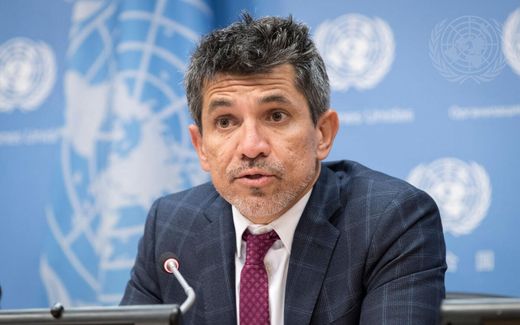When your adolescent daughter suddenly tells you she wants to be a boy

Photo RD, Joanne van de Riet
Christian Life
"Nonsense, you're just a girl." The words are out before you know it. A thousand thoughts shoot through your head as your adolescent daughter reports being a boy. You didn't see this coming. So how can you react wisely nevertheless?
Stay up to date with Christian news in Europe? Sign up for CNE's newsletter
Some children struggle with their bodies from an early age. They are born a boy, but feel like a girl. Or vice versa. You notice this as parents. This is called gender dysphoria. For most, the discomfort disappears naturally as they grow up. Others don't have trouble with their gender until puberty, more or less suddenly. In such a situation, the message can come out of the blue to parents.
What do you do when your adolescent unexpectedly indicates he or she is trans? "Listen first and foremost", responds child psychiatrist Stella O'Malley. "As a parent, you may feel overwhelmed by the announcement. Then it is wise not to say too much. Realise that your child, like you, is full of emotion. The situation can then quickly spiral out of control."
Genspect
This advice comes from an expert in gender issues, for that is what the Irish O'Malley is. Her work as a psychotherapist further convinced her that young people's gender issues are best served by a non-medical approach. In her practice, she counsels teenagers and young adults with gender dysphoria, along with their parents. Outside Ireland, O'Malley is also a recognised voice around this issue. Besides publishing and podcasting on the subject, three years ago she founded Genspect, an international organisation that advocates a "healthy approach to gender and sex" based on scientific evidence. She and two co-authors recently published a guide for parents whose child indicates they are transgender.
How do you help your child?
-
Listen and ask clarification questions
-
Ask him for time
-
Delve into the subject
-
Tell your findings and how you want to help him
What O'Malley often sees happening is that a child or young person knows much more than their parents during an initial conversation. "Some have spent months-or even years-intensively exploring the topic of transgenderism online. They are given all kinds of ideas and terms there. As a result, there is often a disparity in such a first conversation."
The child psychiatrist wishes that parents and child get a good start around this difficult topic. So her advice in the first moments is not to say too much, but to ask open questions: Since when have you been struggling with this, how do you see this and why do you think that?
Besides listening and asking clarification questions, the Irish gender expert recommends that parents ask their child for time at this stage. "They desperately need that to immerse themselves in the subject and form an opinion on something their child is already much further along."
An example
It is almost time for dinner. 14-year-old Janne comes to stand next to her mother at the kitchen counter and says: "Mum, I need to tell you something. Everyone knows, except Dad and you. I'm trans."
Mother: "Okay. That sounds big."
Janne: "I am a boy and I want you to understand. My name is Jorn."
Mother: "Okay. I'm afraid I'm don't quite get it. Please help me."
Janne: "I have known for a long time that I am a boy. You don't know my feelings."
Mother: "I understand you. I do need some time to process this. Maybe you can send me links to sites you think are important? I want to try to keep up with you. It feels like you have far surpassed me in this."
After listening and asking for patience, the next step is for parents to read up on the subject, says O'Malley. "It is important for them to delve thoroughly into what transgender is and what transition entails. As a parent, you need to know what the thinking is that your child is full of and what the consequences are. It is not loving or healthy to focus only on the positives or only on the negatives. It is well known that a teenager's brain is not yet fully formed. This is another reason why he deserves good guidance."
Some time later, Janne again strikes up a conversation.
Janne: "Mum, I want you to use "he" and "him" when talking about me. I find it very annoying if you refuse to do so."
Mother: "I'm sorry, dear. I don't want to make you angry."
Janne: "Well, it's really irritating."
Mother: "You have to give me time. I'm catching up with you to make the right choices. Right now, you know more than I do and that's actually not very healthy."
Janne: "You don't need time, you need to respect my personal pronouns."
Mother: "Honestly, I just don't know what you need at the moment. But I do know that I need time, you will have to respect that. You are more precious to me than anything else in the world. I shouldn't rush anything, I love you more than I can say with words."
Janne: "This is so frustrating!"
Mother: "I know, I'm sorry. But I'm going as fast as I can."
The psychotherapist advises parking any concrete request at this stage. "As long as parents are not experts, it is better not to respond to the child's wishes, neither consenting nor rejecting. Time is an important element for parents at this stage. They need it to read and listen to study the subject from all sides. Parents should not be rushed into this, even though the urgency may be very uncomfortable with the child."
Once parents have sufficient knowledge, the next step is to determine how they can support their child, says O'Malley. "Educators then sit down with their child and tell them that they have read up and what guidance they can offer at the moment. Not as a dictate, but more as a guide to how the family will function in the coming months, with a review in a few months to see how things are going."
A conversation might then go like this:
Janne: "So you are going to call me Jorn from now on? And use he/him?"
Mother: "Dad and I thought about that, but we decided not to use your new name. However, if you want, you can let your friends and girlfriends call you that."
Janne: "You are terrible! How can you do this to me?"
Mother: "I'm sorry. We have read everything that is important and that makes us cautious because we don't think we are helping you in the long run if we go along with your gender identity now."
Janne: "I hate you!"
Mother: "That hurts, dear. I wish I could do otherwise, but we really think this is best for you right now. We love you more than words can say. We will keep reading and keep studying."
Janne: "You are ruining my life."
Mother: "Sorry, darling. We really think this is for the best."
The conversation may escalate, so insert a pause.
O'Malley thinks it is very important that parents stand beside their child rather than opposite him. And that the child experiences their love, even if their choices do not make them happy. "Try to sympathise with the teenager without getting too emotional, and authoritative but not authoritarian. Since every decision can have far-reaching consequences, a child does not need indulgent or thoughtless guidance, but rather careful, cautious and compassionate guidance. A parent who acts in this way never ultimately disappoints, but rather provides support and makes a child receptive to every possible option."
Parents often find it tough that they cannot resolve their child's emotional pain. Yet they can be of great help, says O'Malley. "They can comfort, talk to their child and sometimes move with them. The latter does not mean that parents should always give in to the child's desires. Sometimes conflicts occur and the child thinks x should happen while the parent thinks y is better. The parents' role is to protect their child as much as possible. Parents are focused on the long-term, while children often think of short-term happiness."
Puberty blockers
O'Malley points out that scientific evidence around the medical treatment of children with gender dysphoria is lacking. "Administering puberty blockers is experimental because it is not known whether a medical transition improves long-term well-being. There is growing evidence that it does not. Reason why Sweden, Finland, Norway, Denmark and the UK rolled back prescribing puberty blockers to children."
Either way, a child benefits from learning to cope with adversity and grief, even if there should be chronic gender dysphoria, says O'Malley. "Whatever choice it makes. A medical transition is incredibly difficult and places a heavy burden on the body. Parents then play an important role, but talk therapy or other coaching can also help. The ability to deal with problems is a gift for life.”
Reading tips
What are the do's-and-don'ts for parents, teachers and other educators as the topic of transgender takes on a concrete face? What is needed and what mistakes should not be made? In English, however, extensive practical guides were recently published by gender experts for whom medical intervention for children with gender dysphoria is not a realistic choice.
With "When Kids Say They're Trans", Sasha Ayad, Lisa Marchiano and Stella O'Malley provide parents with expert guidance around gender issues. The premise of the three (gender) professionals is that children need parental love to develop stably. To lead properly, parents in turn need substantive knowledge (ed. Swift Press, 204 pages, €26.35).
In his booklet "Talking to Kids about Gender Identity", Mark Yarhouse provides a Christian parenting guide. He discusses what the Bible says about being transgender, what parents can tell a child in general about gender and how to deal concretely with gender dysphoria. Yarhouse leads an American Protestant Institute on Gender Identity as a clinical psychologist (ed. Bethany House, 168 pages, €22.88).
"Lost in Trans Nation" provides insight into developments around gender in society. American child psychiatrist Miriam Grossman aims to show parents a passable way forward by sharing information and offering concrete handouts. Each time, for her, the question is what lies behind a child's gender confusion (ed. Skyhorse Publishing, 317 pages, €37.14).
This article was translated by CNE.news and published by the Dutch daily Reformatorisch Dagblad on March 22, 2024
Related Articles









